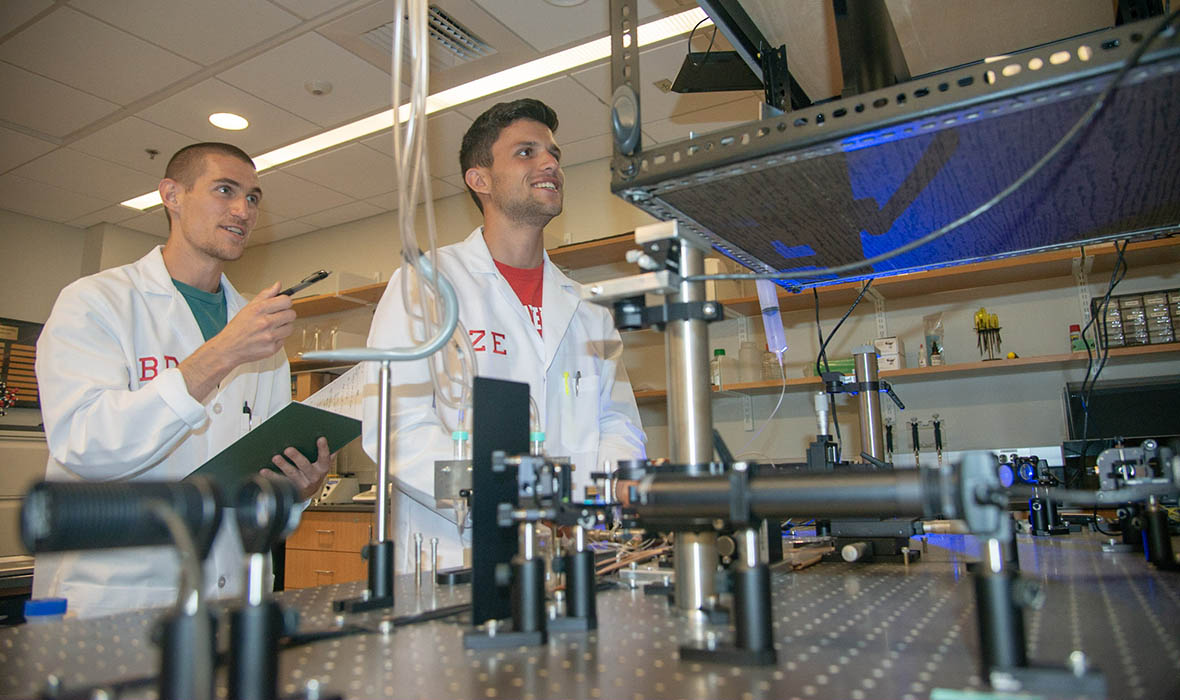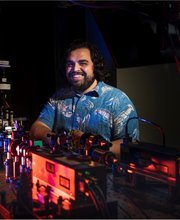See the Light: Become an Optical or Photonics Engineer with a Bachelor’s in Photonics and Optical Engineering at BSU
The sky is the limit with photonics and optical engineering. Study and work with light energy and light information to design devices and create advances in laser manufacturing, communications, biomedical and chemical sensing, display technology, optical computing and transportation. With your Bachelor of Science in Photonics and Optical Engineering, you will join a next generation, fast-growing technologies industry with strong roots in Massachusetts.
While studying photonics engineering and optical engineering at BSU, you won’t have to wait long for exciting hands-on opportunities. We’ll introduce you to cutting-edge equipment early in your undergraduate studies. You may also conduct research and pursue internships as early as your sophomore year.
At BSU, you will find the photonics engineering and optical engineering program that works best for you. Through the Department of Physics, Photonics and Optical Engineering, you may choose a:
- Photonics and Optical Engineering, BS: Prepare for a successful career in optics, photonics and other engineering, scientific or mechanical fields.
- Photonics and Optical Engineering Minor: Complement another bachelor’s degree, from education to other sciences, with a photonics and optical engineering minor.




